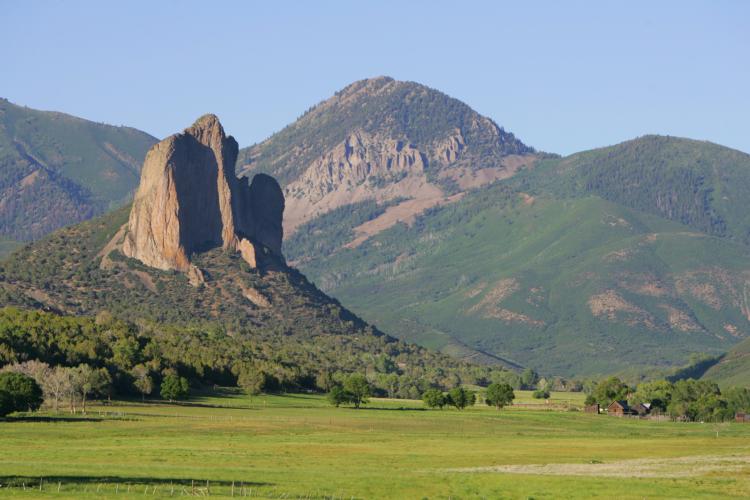
February 26, 2015 – Presentations to Explore Future of Agriculture in the Smith Fork Valley
All Crawford area residents, especially those working agricultural land or with an interest in the future of water use, are invited to a meeting on Wednesday March 11, from 4-6 pm, at the Black Canyon Café in downtown Crawford. Light refreshments will be provided.
The meeting grew out of a discussion by local ranchers and farmers who are concerned about what the Crawford area will look like in the future, as new demands on water interact with existing agricultural values, and as funding opportunities for irrigation infrastructure improvements become available. While other communities in the North Fork Valley and the entire Gunnison River Basin have been working to address water use issues, there has been very little public attention given to what’s happening in the Smith Fork watershed. “This meeting is designed to focus specifically on what’s happening within the Smith Fork watershed,” said Tony Prendergast, watershed coordinator for the Western Slope Conservation Center.
The two hour meeting will include presentations by representatives from the Colorado River District, Trout Unlimited, Selenium Task Force, and the Crawford Water Conservancy District. Speakers will discuss unique challenges and opportunities for water managers and users in the Smith Fork system, why people are talking about water efficiency, challenges to balancing growing demands on our limited water supplies, and local funding opportunities available to producers in the Smith Fork region. There will be ample time for questions and discussion.
“What we have been doing is not efficient, in terms of 20 years from now,” said Crawford rancher Dick Hansen, who will attend the meeting. “I think that there’s a need for knowledge in terms of both how to utilize water efficiently and also the kinds of help that we can get to do that. Most of the time I’m thinking that people would not be able to afford many of the measures to utilize water efficiently unless there were some substantial grants or funding to assist with that.” Which there are!
So please join your neighbors and come learn more about our most important resource, water, as we navigate into a future that will require new approaches to an old set of issues. Take the first step on a collaborative path that seeks to preserve water for nature’s needs while also serving agricultural, recreational, domestic, industrial, and other water users.
